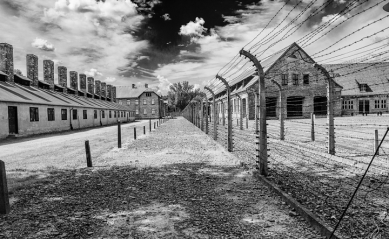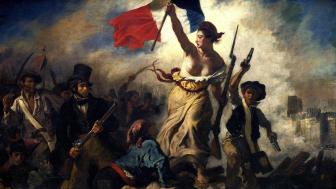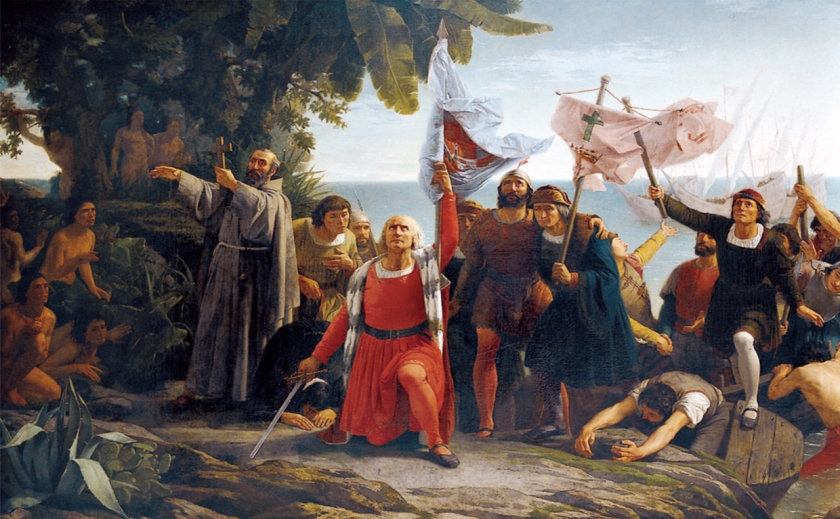 From increasing your understanding of the past, to simply being entertained by good ‘ole fashioned story-telling, podcasting can be both productive and enjoyable. Here are a few interesting and popular podcasts that’ll help you be history-savvy:
From increasing your understanding of the past, to simply being entertained by good ‘ole fashioned story-telling, podcasting can be both productive and enjoyable. Here are a few interesting and popular podcasts that’ll help you be history-savvy:
 From increasing your understanding of the past, to simply being entertained by good ‘ole fashioned story-telling, podcasting can be both productive and enjoyable. Here are a few interesting and popular podcasts that’ll help you be history-savvy:
From increasing your understanding of the past, to simply being entertained by good ‘ole fashioned story-telling, podcasting can be both productive and enjoyable. Here are a few interesting and popular podcasts that’ll help you be history-savvy:
Regarding the Santiago reading, do these two things after thoughtfully reading the 17-ish assigned pages (described in your email):
1) On your site, post 4 questions from/about the text by class on Thursday April 27th; two close-ended questions that can be answered factually about the essence of piece and two open-ended questions that require extended analysis and/or practical application. Don’t try to be fancy, just ask your peers to make helpful and real-world connections. Dig it?
2) Respond to your assigned peers Q’s by Sunday, April 30th by 11:59pm. Note that we are giving you plenty of extra time to help you plan around your other assignments and responsibilities for the exam.
ALSO, recall that you are required to hand in a formal lesson plan according to the provided rubric (by the time you teach your lesson).

 By the start of next Thursday’s class (2/9), READ both Schweber’s Holocaust Fatigue: Teaching it Today and this NY Times article, The Holocaust Just Got More Shocking. Also, if you can make the time, you should check out the US Holocaust Museum as well.
By the start of next Thursday’s class (2/9), READ both Schweber’s Holocaust Fatigue: Teaching it Today and this NY Times article, The Holocaust Just Got More Shocking. Also, if you can make the time, you should check out the US Holocaust Museum as well.
DO THIS: See what group you’re in (click on “Continue reading” below) and respond to the corresponding three prompts in a few sentences on your page by class time on Thursday (2/9). The following readings and reflection will set us up nicely to transition into Night, by Eli Wiesel …which we’ll begin to read next week.
Welcome back y’all!
If you have a chance, please look this syllabus over before class; we’ll be discussing it tomorrow. Our first day back should help us look ahead, reset our course, and catch up… You’ll even have the opportunity to select a micro teaching topic. Further, look over the senior-year-final-exam_rubric that was used last year & will be used this year for your final exam microteaching.

 Here is a slide show about the French Revolution (in PDF format – in KeyNote – in PowerPoint) that is suitable for native English speakers. Look it over and pretend that you’re going to teach ELL high schoolers with it next week. Specifically, make three specific adaptions (e.g. build a ‘Concept Definition Map’ for vocab. words for the words Estate, Clergy, & Nobility) using this Making Content Comprehensible for ELL’s doc that Gerardo generously left for us to use.
Here is a slide show about the French Revolution (in PDF format – in KeyNote – in PowerPoint) that is suitable for native English speakers. Look it over and pretend that you’re going to teach ELL high schoolers with it next week. Specifically, make three specific adaptions (e.g. build a ‘Concept Definition Map’ for vocab. words for the words Estate, Clergy, & Nobility) using this Making Content Comprehensible for ELL’s doc that Gerardo generously left for us to use.*Please note that these dates tentative:

For Thursday, 10/13/16, please read the first chapter of A People’s History of the United States by Howard Zinn, considering the implications of competing narratives in history education.

“In an age dominated by political comedy, The Satire Paradox asks whether laughter and social protest are friends or foes.”
By class on Monday, Please post (in articulate & complete sentences) a response to these prompts from Lintner’s The Savage & The Slave on your website:
1. What is Critical Race Theory? (in a sentence)
2. How does formal curriculum typically portray African & Native Americans? (2-3 sentences, from the text)
3. What is the dominant means by which society receives its racial messages? (2-3 sentences, from the text)
4. How can education promote personal awareness of biases? (2-3 paragraphs, your opinion)